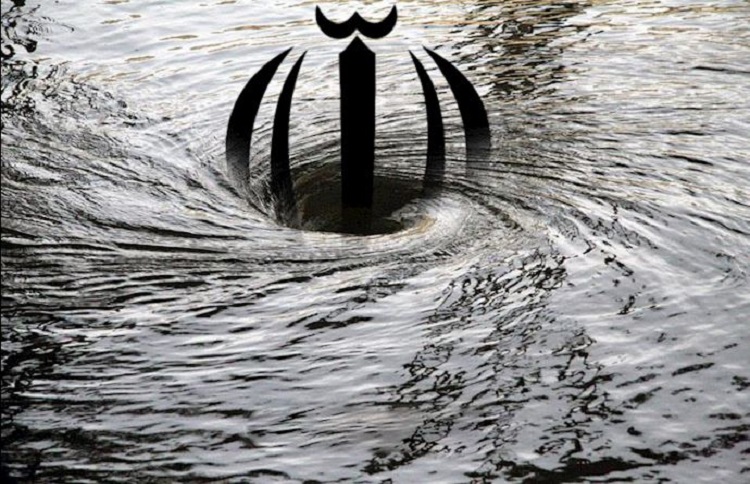
By Jubin Katiraie
The state-run news agency Mizan on 14 March carried a report by the Ara research center (whose operators are people such as Abbas Ali Kadkhodai, secretary of the Guardian Council and IRGC General, Gholamreza Jalali, Passive Defense Force Chief of the Revolutionary Guards).
What is interesting here is the level of the regime’s fear of losing control over the country, because of the crisis that the regime is facing since 2018.
The fear of upcoming uprisings forced this research center to warn the officials of any turbulence which can lead to unrest. The regime no longer has the capacity to handle any further unrest, because they had killed more than 1500 people in 2019, something which the people have not forgotten. Below is the text of the research center:
“The type of crisis management by the relevant agencies, especially the Ministry of Health and the Government Complex … has caused that threats and crisis components to intensify if the current situation continues. A series of threats to security and stability can lead to dangerous insurgencies.
“One of the critical reasons for such a situation is the isolated management and popular arbitrary actions to counter the spread of corona in various areas…
“Since the upheaval of January 2018 in Iran, the system has faced all kinds of threats and conflicts. The year 2019 was exceptional in terms of the complexity of the conflicts and threats in the last four decades. The tightening of sanctions, the Gulf clashes, the direct confrontation with the US in military and terrorist dimensions, the devastating floods at the beginning of the year, the continuing uncontrolled price hikes, gasoline and political upheavals, declining turnout in the election, and the coronavirus epidemic are all part of the most significant changes in 2019, that should be seen as links in a chain, and it should not be interpreted that a new crisis will bury the old crisis.”
This research center added: “The collection of ground truth and domestic and foreign criticism has provided the basis for accusations against the government of secrecy, inefficiency, politicizing and power struggles in the last few months. Domestic media, including official media such as the IRIB (Islamic Republic of Iran Broadcasting), have lost much of its authority in a large part of the middle class with access to other news sources…”
“Will the current trend lead to instability and insurgency? In a wide area, conflicts have been reported in some parts of the country due to the spread of coronavirus. These include the burning of a hospital in Bandar Abbas and the arrival of ordinary people in a number of northern cities to block roads.”
The research continued in fear:
“A review of the positions and activities of counter-revolutionary media and political and media obstinate activists suggests that they see the spread of the coronavirus as a good opportunity, among other things, to undermine Iran’s security and stability.”
“Because the enemies and their media are interpreting all institutions and powers as the whole system, and holding the head of it responsible, they have expanded the mistrust to the system; and crisis management and improve of the situation: The public’s sense of hopelessness over the functioning of the crisis management agencies and organizations can pave the way for regional and local action that will further exacerbate the crisis.”
“Unless there is a severe shortage of goods and commodities, there is a possibility of a rebellion. But whether or not there will be a nationwide uprising against the government’s rule, the extent of the people’s resilience to the crisis must be addressed.”
“Crossing the line of resilience and the lack of a centralized crisis management mechanism can turn local and regional uprisings into nationwide uprisings. Although the coronavirus is widespread in other countries, the linking of the coronavirus crisis in Iran to recent developments, including November 2019, is causing a revolt.”
“Increasing the role of military entities, such as the Army and the IRGC, in controlling the cities and regions affected by the virus can reduce the level of concern for the outbreak by assuming security management and overseeing the proper implementation of restrictions.”
Read More:
Iran Protests, the Strategy of Regime Change by the People
The Future of Iran and the Region Without Qassem Soleimani, Commander of the Quds Force